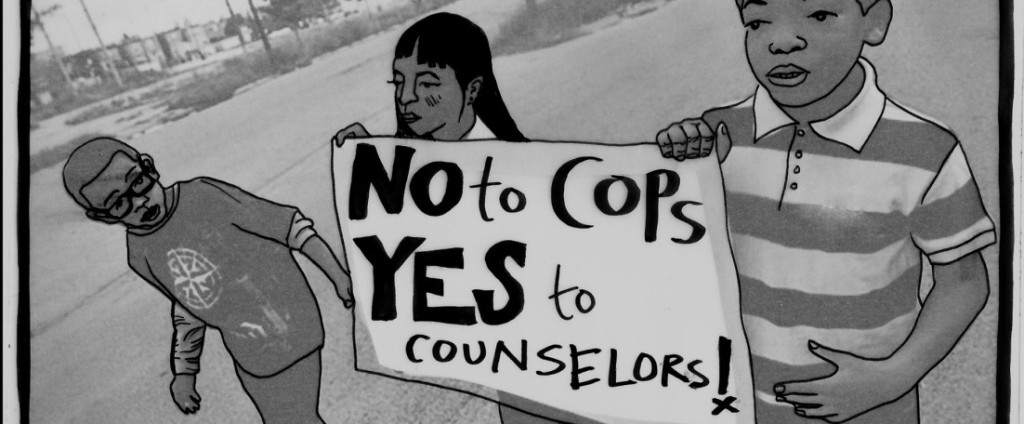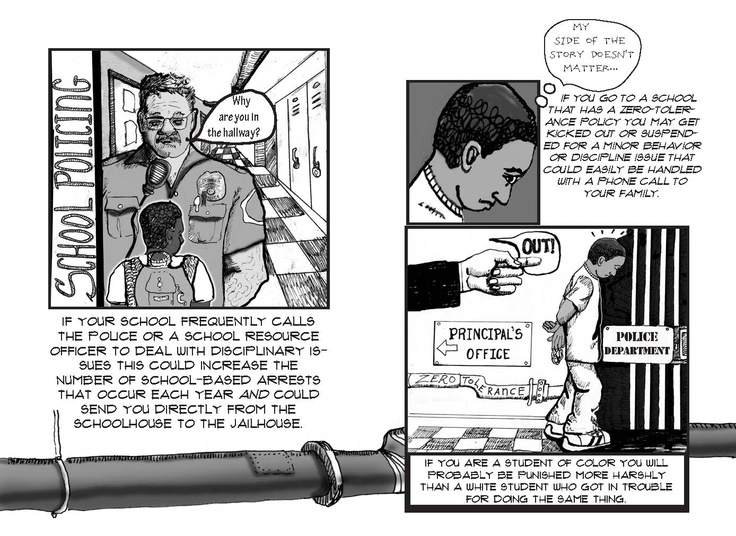 A couple of weeks ago, I attended a meeting of parents of English learners at my daughter’s middle school, here in San Leandro. I don’t usually go to ELAC meetings, but that night my daughter’s choir was going to be performing at the meeting. Before the performance, we chanced upon a presentation on online bullying by the two School Resource Officers (SROs), uniformed sworn SLPD officers which work in San Leandro public schools. In addition to giving general information about bullying, the SROs laid out how they work at the middle schools. I spoke to them later to get more details, and this is what I gathered from that conversation:
A couple of weeks ago, I attended a meeting of parents of English learners at my daughter’s middle school, here in San Leandro. I don’t usually go to ELAC meetings, but that night my daughter’s choir was going to be performing at the meeting. Before the performance, we chanced upon a presentation on online bullying by the two School Resource Officers (SROs), uniformed sworn SLPD officers which work in San Leandro public schools. In addition to giving general information about bullying, the SROs laid out how they work at the middle schools. I spoke to them later to get more details, and this is what I gathered from that conversation:
– The SROs are called in by teachers and administrators to talk to students. Some teachers call them directly, without going through administrators.
– There are no guidelines as to when to call the SROs, which means that factors such as teachers’ prejudices and personal dislike of specific students may very well be what first puts a student in the eyes of the police.
– Most of the times SROs are called to deal with situations that are not of a criminal nature, i.e., where there should be no police involvement. Both the SROs and SLPD professional standards personnel agreed that police should not be involved in non-criminal matters.
– The SROs don’t have any significant training in child development, psychology or social work, and are thus ill equipped to deal with the emotional and psychological needs of children. One of the SROs specifically told me that they are forced to act as counselors, despite their lack of training, because the school does not have enough counselors. Last year, the district decided against hiring counselors and instead proposed to allocate money to hiring police officers.

-The SROs say that they try to get kids to open up and confide in them. But they also said that they threaten kids with arrest and jail if they continue in the path they’re in. Basically, the SROs seem to be given kids the message “trust me, so I can betray you”.
– One of the officers told us “you are your kids’ parents, you are not their friends”. Yet he didn’t realize the irony of their trying to be kids’ friends, while being ultimately law enforcement, until I pointed it out to him.
– The SROs claim they don’t take any notes about what students tell them when they are not being formally investigated for a criminal matter, but they also say that if a kid whom they’ve threatened with arrest breaks the law, they will arrest him. “We won’t hesitate to arrest them, they’ve been warned,” said one of the officers. This means that even if the SROs are not keeping a written log of what child did what, they are keeping a mental log and they are basing their future actions towards that child, on their past interaction with him and her – an interaction that did not concern a criminal matter and that they shouldn’t have had in the first place.
To summarize we have teachers at our middle schools arbitrarily calling the police on students who have not committed crimes, police officers conveying the message “you are going to be a criminal” to children and then using their knowledge of a child’s questionable but non-criminal behavior to inform their decision of whether to arrest that child.
What is particularly perverse about this system, and the school-to-prison pipeline, is that it does not require any bad intentions on anyone’s part. The teachers who call police on student, may honestly believe that they are doing the kids a favor. Maybe by installing a little fear on them, they may speculate, the kid will straighten up and become a productive citizen. If the teachers disproportionally call police on students of color, it may very because of innate racial and cultural biases of which they are not aware. Multiculturalism can be a difficult philosophy to adopt for people whose life experiences are geographically limited.
I firmly believe that the SROs want the best for the kids, but they are put in an impossible situation: having to provide counseling without the necessary training and education to do so, while doing their actual job of enforcing the law, which invariably means arresting people, including kids, and trying to get them prosecuted.
But the road to hell is paved with good intentions, and so is the road to prison for far too many children of color:
So we end up in a situation where a teacher may develop a dislike of a student because she finds that student disrespectful and particularly sassy. That teacher may punish the girl in little ways: yell at her, have her sit in a corner, send her to the office for dress code violations. If the girl is not easily intimidated, she may respond by being even more disrespectful and sassy until something happens that gives the teacher a “reason” to call the police. Perhaps there was a fight between students that included this girl, or something went missing from the classroom and the teacher thinks this girl has it. The police will talk to the girl, she’ll be defiant and difficult – as girls are likely to be when falsely accused – and the police officers will type her as being trouble, maybe they will even make her believe she’s is trouble. A couple of years later, someone accuses the girl of shoplifting or there is a fight with another student that turns ugly, the police are called in. The SRO recognizes her and, already thinking of her as trouble, unconsciously interprets the situation against this girl. Some sass in middle school can mean a jail cell as a teen.
It’s time we work together to break that pipeline.


Thank you so much, Marga. This is such a dangerous blending of roles on the officers’ parts and on the part of the school. Yes, children need to behave appropriately as “scholars,” but if they feel that their poor behavior will be evaulated and punished as if they are in a police setting, how can they trust their teachers and have the open minds and open hearts necessary to learn from them? You are inspiring me to call the office about a recent occurrence with my younger daughter–some boys were roughhousing in the hall, and she ended up being banged against a door as she tried to pass by them, which drew blood on her arm and ended up in a visit to the office. She and her friends (acting as witnesses) were asked to pick out pictures of some boys from the yearbook in an effort to identify the boys who were roughhousing. What happened to those boys, I wonder? I was curious about it at the time, but I am embarrassed to say that I didn’t call to follow up. For some reason, I thought that these officers were only at the high school.
Wrong just wrong. I think there are bigger problems out there at this time Like real crime going on and I believe that this is a waste of valuable time and precious funds